Imagine a world where wrinkles fade, energy levels surge, and your vitality blossoms. This isn’t a science fiction movie; it’s the reality you can achieve through the power of an antiaging diet. Forget expensive creams and fad trends – the fountain of youth lies on your plate.
This comprehensive guide takes you on a captivating journey through the world of anti-aging cuisine. We’ll unveil the secrets of food that fight time, explore the science behind it all, and equip you with practical tools to transform your diet and life.
Key Takeaways
- Activate your anti-aging pathways with antioxidants, fiber, and healthy fats.
- Synergize food groups for maximum benefit. Explore dietary patterns like the Mediterranean diet.
- Start small and debunk diet myths.
- Try nutrient-rich meals and embrace a holistic approach to anti-aging.
- It’s an exciting journey of empowerment towards a healthier, happier you!
Beyond the Surface: Unmasking the Science of Anti-Aging Food
Aging is a natural part of life, but what we eat can significantly impact how we age. Food isn’t just fuel, it’s information that tells our bodies how to function. The right choices can activate anti-aging pathways, while the wrong ones can accelerate aging.
This guide delves deep into the science behind anti-aging food, revealing:
- The power of antioxidants: These mighty warriors combat free radicals, the harmful molecules that damage cells and contribute to aging.
- The magic of fiber: This gut-friendly nutrient promotes digestion, regulates blood sugar, and reduces inflammation, all crucial for healthy aging.
- The importance of healthy fats: Not all fats are created equal. Choosing healthy fats like those found in nuts, seeds, and fish promotes heart health, brain function, and cellular repair.
- The protein paradox: While excessive protein can be detrimental, adequate protein intake is essential for maintaining muscle mass, which declines with age and impacts metabolism and strength.
Unveiling the Culinary Treasures: A Guide to Anti-Aging Food Groups
No single food holds the key to eternal youth. Instead, the power lies in the synergy of various food groups. Here are some of the anti-aging heroes you’ll encounter:
- The Vibrant Guardians: Fruits and vegetables burst with antioxidants, vitamins, and fiber. Think of them as your natural defense system against aging.
- The Whole Grain Warriors: These complex carbohydrates provide sustained energy, support healthy digestion, and regulate blood sugar levels.
- The Leguminous Legends: Rich in protein, fiber, and essential vitamins, beans and lentils offer a powerful combination to boost your health and longevity.
- The Nuts & Seeds Saviors: These tiny nutritional powerhouses pack a punch with healthy fats, protein, and antioxidants. Enjoy them as snacks, add them to salads, or incorporate them into your favorite dishes.
- The Fatty Fish Champions: Salmon, tuna, mackerel – these ocean treasures are a rich source of omega-3 fatty acids, known for their anti-inflammatory and brain-boosting properties.
Unleashing the Power: Embracing Anti-Aging Dietary Patterns
While individual foods are important, the real magic happens when you combine them into powerful anti-aging dietary patterns. Here are some of the most widely recognized:
- The Mediterranean Masterpiece: This vibrant diet features fruits, vegetables, whole grains, legumes, healthy fats from olive oil, and moderate amounts of fish. It’s delicious and backed by extensive research demonstrating its anti-aging benefits.
- The DASHing Defender: Designed to combat high blood pressure, this diet emphasizes fruits, vegetables, whole grains, lean protein, and low-fat dairy. Its focus on heart health translates to overall well-being and extended life expectancy.
- The Okinawan Oasis: Inspired by the traditional diet of long-living Okinawans, this dietary pattern features vegetables, sweet potatoes, seaweed, tofu, and moderate fish consumption. It’s a testament to the power of simple, plant-based foods in promoting longevity.
Crafting Your Anti-Aging Feast: Transforming Your Diet Step-by-Step
Embracing an anti-aging diet isn’t about drastic overnight changes. It’s about making conscious choices that lead to lasting transformations. Here’s how you can embark on your delicious journey:
- Start small and celebrate each victory. Don’t overwhelm yourself. Begin by incorporating one or two new anti-aging foods into your daily routine.
- Embrace the bounty of nature. Explore the colorful world of fruits and vegetables, experiment with different whole grains, and discover the diverse flavors of legumes.
- Unleash your inner chef. Cooking at home allows you to control ingredients and portion sizes. Explore healthy recipes inspired by anti-aging cuisines.
- Plan and conquer. Planning your meals and snacks helps you avoid unhealthy choices when hunger strikes.
- Hydrate for life. Water is essential for every bodily function, including those related to aging. Aim to drink plenty of water throughout the day.
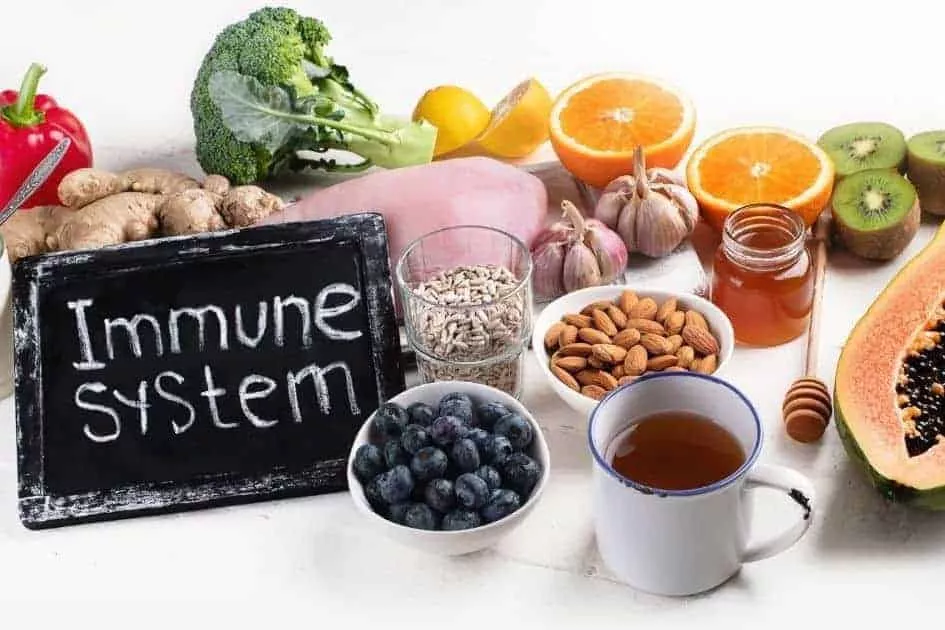
Shattering the Myths: Unmasking Common Anti-Aging Diet Misconceptions
The world of anti-aging is often shrouded in myths and misconceptions, creating confusion and hindering progress. Let’s debunk some of the most common myths so you can make informed choices about your diet:
Myth #1: You have to eliminate all your favorite foods.
Fact: Deprivation is unsustainable and unnecessary. While moderation is key, you can still enjoy occasional treats. Focus on incorporating more anti-aging foods and gradually reduce the frequency of less healthy options.
Myth #2: Expensive supplements are the key to unlocking youth.
Fact: While certain supplements may offer specific benefits, a balanced diet is the foundation for anti-aging. Focus on whole foods first, and consult a healthcare professional before starting any supplements.
Myth #3: Specific “anti-aging” foods exist.
Fact: No single food holds the magical power of youth. It’s about the synergy of various food groups to promote overall health and longevity. Don’t fall for fad diets focusing on one or two “miracle” foods.
Myth #4: You need to cut out all carbohydrates.
Fact: Whole grains and complex carbohydrates are vital for energy, gut health, and overall well-being. Avoiding them can backfire, leading to fatigue and nutrient deficiencies.
Myth #5: An anti-aging diet is all about restrictions and deprivation.
Fact: Embracing an anti-aging diet is about celebrating food and nourishing your body with delicious and nutritious choices. You can enjoy a variety of flavors and textures while reaping the benefits of a healthy lifestyle.
Anti-Aging Weekly Menu
This anti-aging menu incorporates a variety of nutrient-rich foods from different food groups, emphasizing fruits, vegetables, whole grains, lean proteins, and healthy fats. It also promotes gut health, reduces inflammation, and provides essential vitamins and minerals for optimal well-being.
Monday:
- Breakfast: Oatmeal topped with blueberries, almonds, and a sprinkle of cinnamon.
- Snack: Greek yogurt with mixed berries.
- Lunch: Grilled salmon with steamed broccoli and quinoa.
- Snack: Carrot sticks with hummus.
- Dinner: Baked chicken breast with roasted sweet potatoes and sautéed spinach.
- Dessert: Dark chocolate squares.
Tuesday:
- Breakfast: Spinach and mushroom omelette with whole grain toast.
- Snack: Apple slices with almond butter.
- Lunch: Quinoa salad with mixed vegetables and grilled chicken.
- Snack: Kale chips.
- Dinner: Baked cod with roasted asparagus and brown rice.
- Dessert: Mixed berries with a dollop of Greek yogurt.
Wednesday:
- Breakfast: Chia seed pudding with sliced strawberries and walnuts.
- Snack: Celery sticks with peanut butter.
- Lunch: Lentil soup with a side salad (mixed greens, tomatoes, cucumbers, and avocado).
- Snack: Almonds.
- Dinner: Grilled tofu with stir-fried vegetables (broccoli, bell peppers, and snap peas) and brown rice.
- Dessert: Homemade fruit sorbet.
Thursday:
- Breakfast: Whole grain toast topped with avocado and smoked salmon.
- Snack: Orange slices.
- Lunch: Quinoa-stuffed bell peppers with a side of green salad.
- Snack: Trail mix (almonds, walnuts, dried cranberries).
- Dinner: Baked turkey meatballs with zucchini noodles and tomato sauce.
- Dessert: Frozen grapes.
Friday:
- Breakfast: Greek yogurt parfait with layers of berries and granola.
- Snack: Sliced cucumber with tzatziki sauce.
- Lunch: Grilled chicken breast wrap with whole wheat tortilla, lettuce, tomatoes, and avocado.
- Snack: Edamame beans.
- Dinner: Grilled shrimp skewers with roasted Brussels sprouts and wild rice.
- Dessert: Kiwi slices.
Saturday:
- Breakfast: Vegetable omelette (bell peppers, mushrooms, spinach) with whole grain toast.
- Snack: Banana smoothie (banana, almond milk, spinach).
- Lunch: Quinoa bowl with roasted vegetables (sweet potatoes, cauliflower, Brussels sprouts) and grilled chicken.
- Snack: Air-popped popcorn.
- Dinner: Baked salmon with quinoa pilaf and steamed asparagus.
- Dessert: Mixed berry crumble (with oats and almond flour topping).
Sunday:
- Breakfast: Whole grain pancakes topped with fresh fruit and a drizzle of honey.
- Snack: Cottage cheese with pineapple chunks.
- Lunch: Lentil and vegetable curry served over brown rice.
- Snack: Roasted chickpeas.
- Dinner: Grilled steak with roasted root vegetables (carrots, beets, parsnips) and a side salad.
- Dessert: Dark chocolate-covered strawberries.
Remember to consult with a healthcare professional or registered dietitian before starting any new diet plan to ensure it meets your specific nutritional needs.
To achieve this, you only have to follow these suggestions:
- Eat natural food, not processed or sweetened products. Products with more than five ingredients are usually designed to confuse your brain, so you consume more than you need.
- The amount of ingredients in these products makes them unrecognizable as food and activates the immune system’s response as if it were an invader.
- Avoid or minimize cereals, legumes, and dairy. Although recently becoming predominant in our diet, they can provoke an inflammatory response.
The cause of inflammation from consuming these foods may be certain irritants present or contain proteins that humans cannot properly break down well.
Your antiaging diet should stimulate metabolic flexibility.

We define metabolic flexibility as using the optimal energy substrate for each situation.
The widespread consumption of predominantly carbohydrate meals leads to the metabolism of carbohydrates’ exclusive use as an energy substrate.
The combustion of glucose for energy generates an oxidative load greater than that produced by fats’ combustion.
Therefore, spacing meals and performing periods of the ketogenic diet (both tools stimulate fat as the primary fuel) are strategies for preventing metabolic rigidity and restoring flexibility.
Your antiaging diet should include fasting
One of the strategies with more evidence for stimulating cellular recovery processes is undoubtedly intermittent fasting.
👉 On multiple occasions, I have told you about the benefits of intermittent fasting:
Regulate your biorhythms
Improve your energy Recovers digestive processes
It is a simulator so that your cells always stay young.
The key is to vary the stimuli since the number of hours without eating in each fast makes the effect you get vary.
Tips for getting started with intermittent fasting

You can start with a minimum of 12 hours of fasting and 12 window hours in which you eat your meals.
Then, experience days where you do about 16 hours of fasting and 8 where you eat. You can also eat only once a day.
If you want to put these recommendations in hours, to make it easier for you, it would be something like eating between 12-13 hours until 20-21 hours.
If you eat a larger meal and are not hungry, wait to regain your hunger and thus prolong the fast.
Once you have adapted to spacing meals, you can include a longer fast (48-72 hours) every 2-3 months in your antiaging diet.
Your diet should vary the total amount of protein
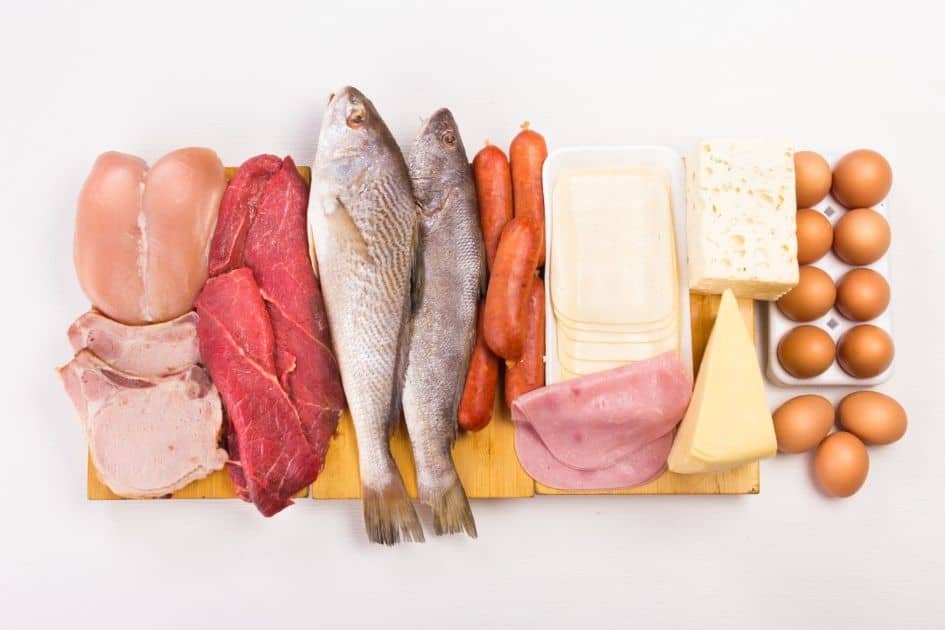
This is perhaps one of the most controversial aspects of the general premises.
On the one hand, there are quite a few studies. Most are still fundamental research, epidemiology, or observational of populations with a high percentage of people over 100 years old. That indicates the connection of moderate protein consumption with longevity.
This is because the protein stimulates mTor, a transcription factor that generates cell growth.
On the other hand, we know that conserving muscles is a determining factor in avoiding diseases as we age. This depends on adequate protein consumption (besides, of course, to stay active).
This apparent contradiction is not yet well resolved in the clinic to give you my opinion. If we comply with the 3 previous aspects, mainly the subject of fasts where we stimulate cell regeneration, the consumption of little protein is no longer so relevant and even counterproductive if we think that after fasting, it is essential that we manufacture new cells.
That is why my recommendation regarding this parameter would be based more on the level of physical activity and the quality of the protein you consume and would continue to generically recommend between 0.8 and 1.8 grams of protein per kg of bodyweight—raising the percentage in moments of seeking muscle gain.
Active principles that you should include in your antiaging diet
Some active principles that are present in the regeneration processes and that give us a clue about the foods that we will choose for our diet are:
Resveratrol
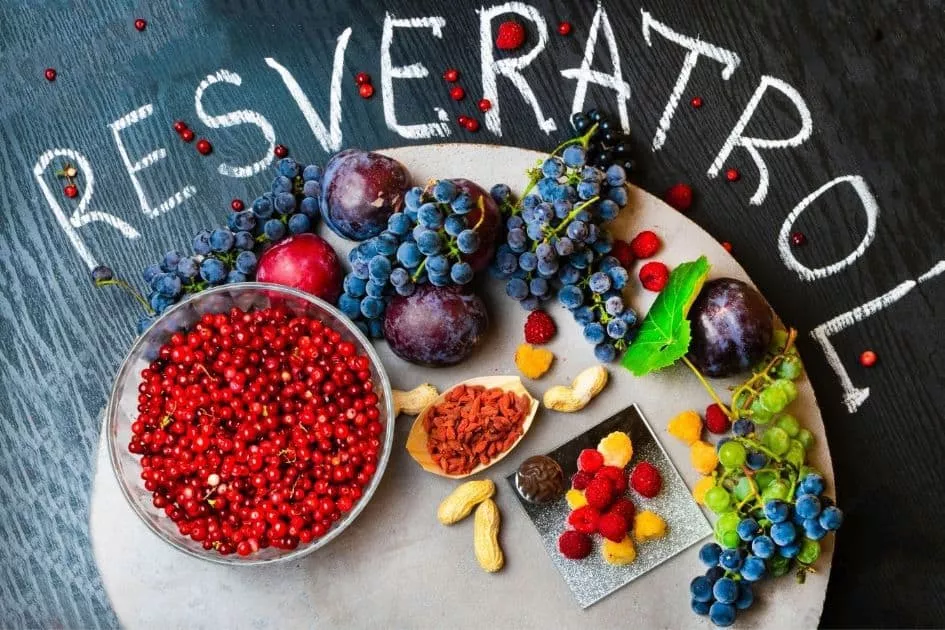
Resveratrol is a naturally occurring composite found primarily in the skin of red grapes and in the root of Polygonum cuspidatum, known as Japanese knotweed.
It is also present to a minor degree in peanuts and blueberries. Resveratrol protects plants in which it is present from the attack of fungi and the damaging effects of ultraviolet radiation.
Numerous studies have shown that resveratrol can delay or prevent various diseases, including cancer and cardiovascular disease, and extend the lifespan of organisms from yeast to vertebrates.
These protective effects are probably due to resveratrol’s anti-inflammatory and antioxidant properties. Its ability to activate enzymes like sirtuin 1, or SIRT1, a type of enzyme that plays a role in aging and longevity.
Quercetin
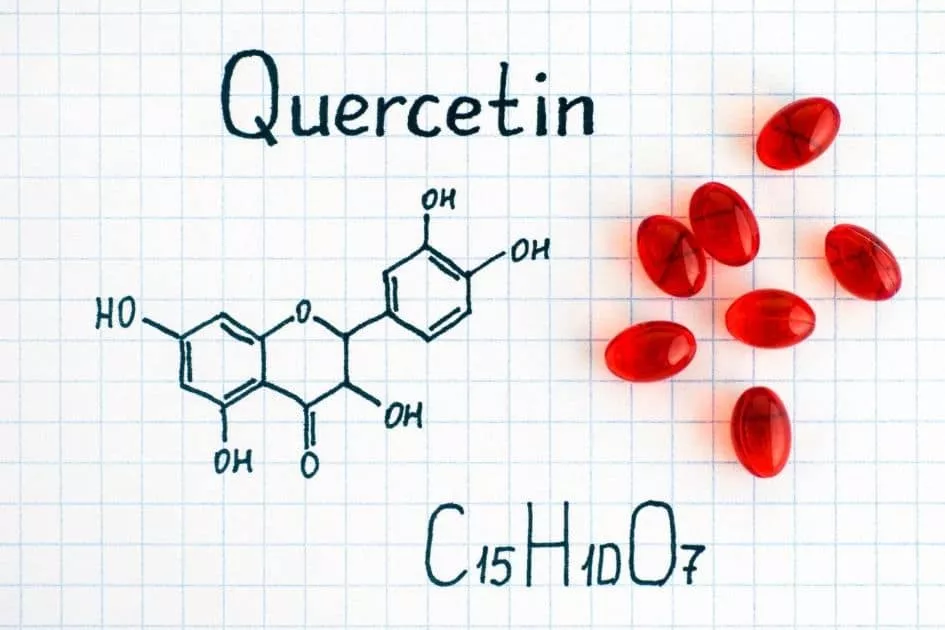
Quercetin is a bioactive compound that exerts antioxidant and anti-inflammatory properties; research also indicates that it may help fight aging diseases.
It relieves chronic health conditions like hypertension, neurodegenerative diseases, arthritis, and lung and kidney diseases.
Quercetin is found in various fruits and vegetables, mostly red and yellow onions, capers, apples, blueberries, and bell peppers.
Regarding the antiaging effects, it seems that quercetin helps eliminate aging cells and can be replaced by others.
Spermidine
Spermidine is an aliphatic polyamine. From a physiological point of view, it is interesting because it synchronizes a series of biological processes associated many of them with the regulation of electrolytes. It is present in various foods such as mushrooms, cheese, or wheat germ.
Spermidine is a longevity agent in mammals due to several action mechanisms, which are only just beginning to be understood. It is mainly believed to be able to stimulate the cellular regeneration process known as autophagy.
Even so, we consider it, at least for the moment, the least interesting of the three active ingredients, as it must be concentrated in reasonably high amounts to achieve antiaging effects.
Conclusions
Without a doubt, in an antiaging diet, what to eat is as important as when to eat. Space your meals, and you will regenerate.
Avoiding foods with inflammatory potential makes it easier for the body to use energy to regenerate.
Once the first two premises have been met, including foods that contain resveratrol, quercetin and spermidine will give you a plus to activate your regeneration mechanisms.
Weekly antiaging menu
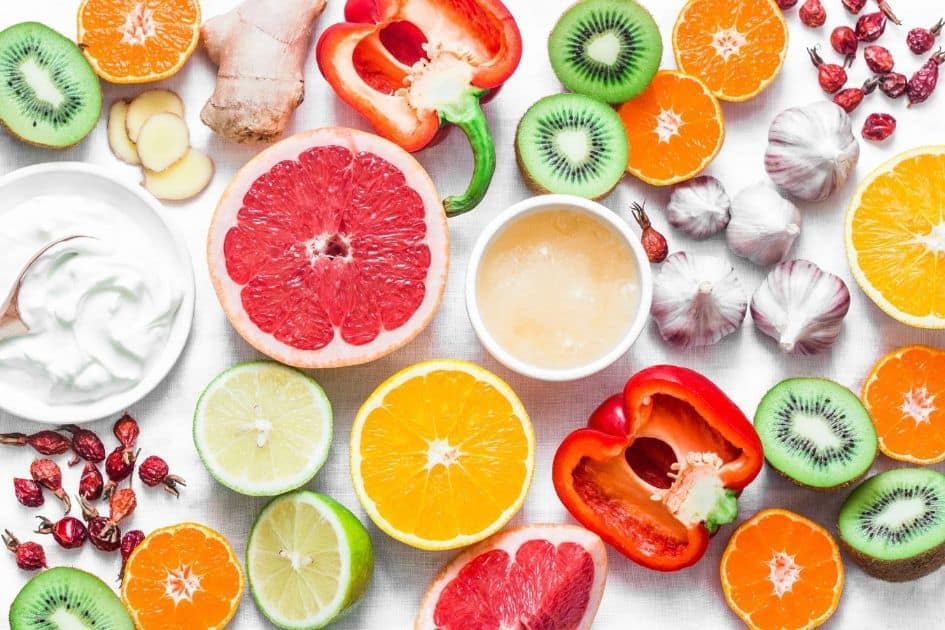
Beyond the Plate: Holistic Approach to Anti-Aging
Remember that diet is just one piece of the anti-aging puzzle. Combining a healthy diet with other lifestyle factors like regular exercise, adequate sleep, stress management, and social connection can significantly enhance your overall well-being and promote longevity.
Embrace the Journey: Your Anti-Aging Adventure Awaits
Embarking on an anti-aging diet is an exciting journey of self-discovery and empowerment. By making informed choices, celebrating your progress, and embracing the joy of delicious food, you can unlock a healthier, happier, and more vibrant you. Remember, it’s never too late to begin your journey towards a more youthful, fulfilling life.
References
- https://pubmed.ncbi.nlm.nih.gov/34793210/
- https://pubmed.ncbi.nlm.nih.gov/23467449/
- https://pubmed.ncbi.nlm.nih.gov/32213934/
- https://www.mayoclinichealthsystem.org/locations/mankato/services-and-treatments/cosmetic-services/wrinkles
- https://www.cnbc.com/2023/03/19/harvard-diet-may-be-the-standard-for-living-a-long-and-healthy-life.html
As a veteran fitness technology innovator and the founder of GearUpToFit.com, Alex Papaioannou stands at the intersection of health science and artificial intelligence. With over a decade of specialized experience in digital wellness solutions, he’s transforming how people approach their fitness journey through data-driven methodologies.